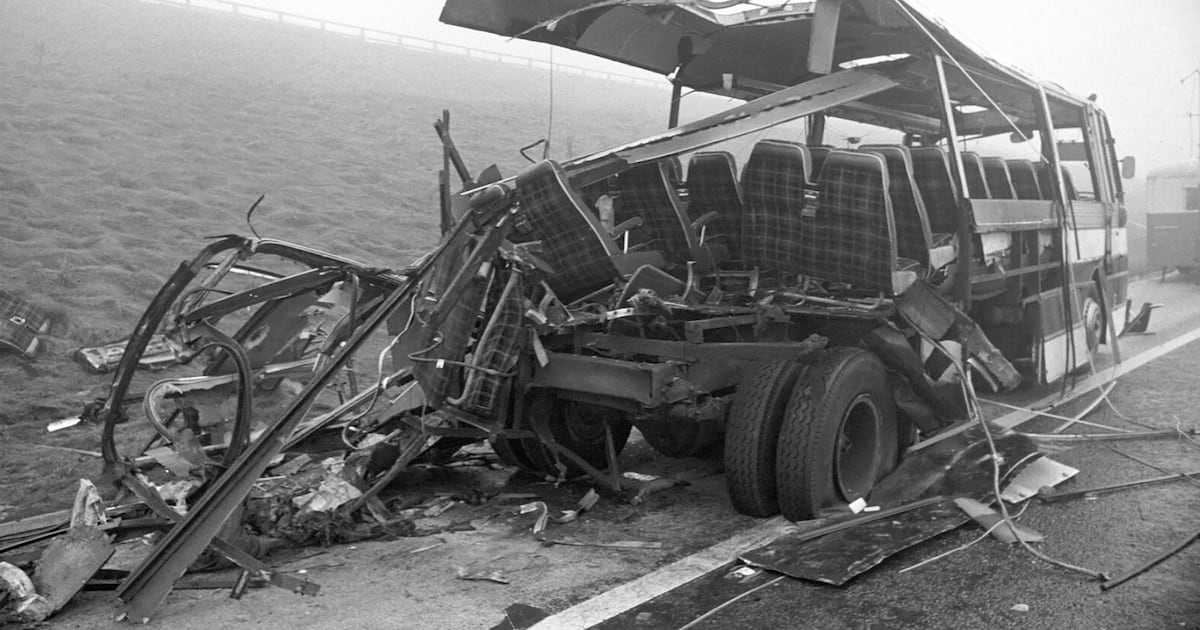Top Stories
New Forensic Evidence Reveals Identified IRA Bombers from 1970s

BREAKING: New forensic evidence has identified several prime suspects linked to the 1970s IRA bombings, including the notorious Guildford pub attacks and other violent incidents in Britain. This urgent development comes from legacy investigators in Belfast, who have confirmed connections to these attacks through advanced scientific testing ordered by the Independent Commission for Reconciliation and Information Recovery (ICRIR).
The suspects, now in their 70s and 80s, are implicated in a series of bombings and shootings that devastated communities from 1974 to 1976. The investigation has made significant strides, particularly concerning the no-warning pub bombings in Guildford, Surrey. The bombings, executed just five days before the October 1974 general election, resulted in the deaths of four soldiers and a civilian, with victims aged between 17 and 21.
The ICRIR is also focusing on the February 1974 M62 motorway coach bombing, where a bomb containing 25 pounds of explosives detonated as a bus carrying off-duty soldiers and their families traveled to a military base. This horrific attack killed nine soldiers and three civilians, injuring 38 others. The incident led to the wrongful conviction of Judith Ward, who spent 17 years imprisoned before her conviction was quashed.
Deputy Commissioner Keith Surtees of the ICRIR remarked, “Thanks to significant advances in forensic science since these atrocities, we have developed highly significant leads.” He emphasized that there is “the real prospect of finally bringing” IRA members involved in approximately 70 bombings and shootings to justice, a statement that could resonate with many communities affected by this violence.
Despite the progress, the Irish Government faces increasing pressure to enhance cooperation with ongoing legacy investigations. Investigators from Operation Kenova have expressed dissatisfaction with previous levels of assistance. They are now calling for a more robust framework for collaboration to facilitate access to evidence held by An Garda Síochána, military intelligence in Dublin, and other relevant parties.
One official closely involved in the situation stated, “If you want to fully investigate cases like Narrow Water, a joint framework with the Irish Government is essential.” This comment underscores the urgency for a comprehensive approach to address historical injustices from the Troubles.
The ICRIR is also probing the deadly August 1979 ambush that killed 18 British army soldiers in Warrenpoint. The attack involved two large roadside bombs detonated by IRA operatives, marking it as the deadliest assault on the British army during the Troubles. This event occurred just five hours after IRA members assassinated Lord Louis Mountbatten in a separate bombing.
As investigators continue to uncover new evidence, the implications are profound for the victims’ families and communities that have long sought justice. With the ICRIR now focusing on these critical historical events, the potential for new prosecutions is a pivotal moment in the ongoing quest for truth and accountability.
Stay tuned for updates as this story develops.
-

 Top Stories2 months ago
Top Stories2 months agoTributes Surge for 9-Year-Old Leon Briody After Cancer Battle
-

 Entertainment3 months ago
Entertainment3 months agoAimee Osbourne Joins Family for Emotional Tribute to Ozzy
-

 Politics3 months ago
Politics3 months agoDanny Healy-Rae Considers Complaint After Altercation with Garda
-

 Top Stories3 months ago
Top Stories3 months agoIreland Enjoys Summer Heat as Hurricane Erin Approaches Atlantic
-

 World4 months ago
World4 months agoHawaii Commemorates 80 Years Since Hiroshima Bombing with Ceremony
-

 Top Stories2 months ago
Top Stories2 months agoNewcastle West Woman Patricia Foley Found Safe After Urgent Search
-

 Top Stories4 months ago
Top Stories4 months agoFianna Fáil TDs Urgently Consider Maire Geoghegan-Quinn for Presidency
-

 World4 months ago
World4 months agoGaza Aid Distribution Tragedy: 20 Killed Amid Ongoing Violence
-

 World4 months ago
World4 months agoCouple Convicted of Murdering Two-Year-Old Grandson in Wales
-

 Top Stories3 months ago
Top Stories3 months agoClimbing Errigal: A Must-Do Summer Adventure in Donegal
-

 World4 months ago
World4 months agoAristocrat Constance Marten and Partner Convicted of Infant Murder
-

 Top Stories3 months ago
Top Stories3 months agoHike Donegal’s Errigal Mountain NOW for Unforgettable Summer Views









